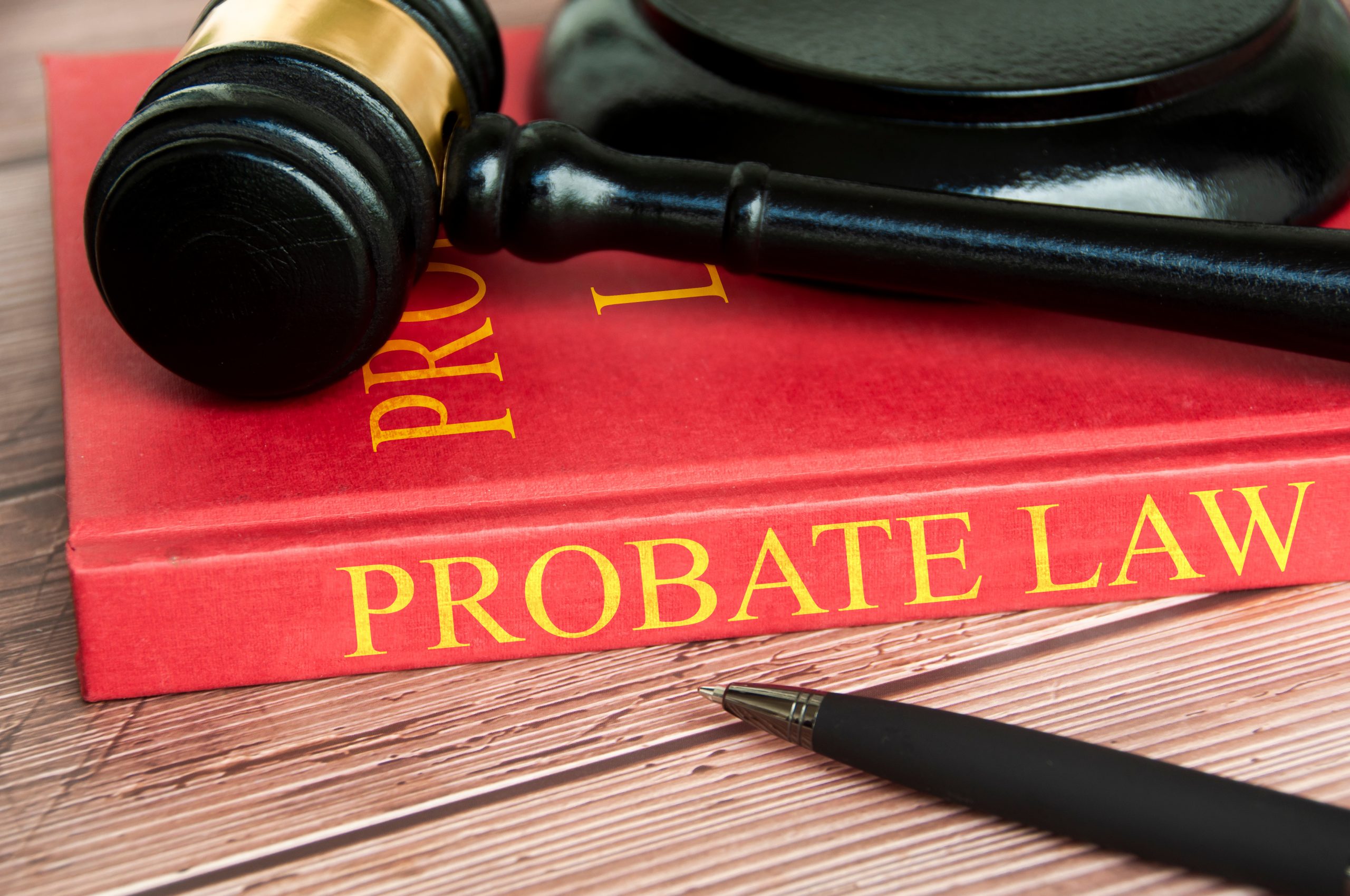Losing someone close to you is never easy. If a deceased loved one listed you as an executor, you may also need to be strong enough to manage their property, money, and other possessions. However, UK law requires you to apply for a probate in accordance with the rules of law in order to make this arrangement. This process is called “probate”.
This article will tell you about how to apply for probate so that you can prepare in advance.
What is probate?
In England and Wales, probate refers to the legal and financial process involved in dealing with a person’s property, money and belongings (called assets) after their death. It is a legal document and confirms who has the authority to administer the estate of the deceased.
Put simply, before you can execute the deceased family estate, you need to go through the statutory process to obtain a probate. Once you receive your probate, you will have the legal right to take the actions specified in the will to enforce the assets of a loved one who has tragically passed away.
For example, an executor can close a bank account, sell a deceased person’s property, sell stock, transfer property to a beneficiary, or close an investment account.
Do I have to apply for probate?
No, many estate arrangements do not need to go through this process. However, if you are made executor in someone’s will, you may have to apply for probate. You may not need probate if the deceased:
- Have joint ownership of land, property, shares or money – these will automatically pass to the surviving owners
- Only have savings
Generally, you’ll want to check whether probate is required, for example, by contacting the financial organizations the deceased used (for example, their bank and mortgage company) to find out if you need probate to access their assets. Each organisation has its own rules and if you are not sure whether probate is required, please seek advice from HM Revenue and Customs (HMRC).
Who can apply for probate?
Who can apply depends on whether there is a will or not. If, in the case of a will, you are named as an “executor” in a will or a will update (called an “appendix”), you are eligible to apply for probate. The deceased will usually tell you if you are the executor. In such cases, you will need to send the original will along with the application for probate (copies cannot be used). The will is kept by the Wills Registry and will become a public record.
Normally, the deceased should tell all executors where to find the original will and any updates, such as:
- At their home
- At a probate practitioner, such as a lawyer
- National Probate Registry in Newcastle – you will need a death certificate and proof that you are the executor
If you cannot understand the will, seek help from a citizenship consulting firm or a probate practitioner (such as a lawyer). However, if you cannot find the original will, you may need to complete form PA13. If there is more than one will, only the most recent will is valid. Do not destroy copies of any earlier wills until you have obtained probate.
So, what if there’s no will?
If the parties do not leave a will, the most “entitled” heir can apply to become the administrator of the estate. This is the closest person – usually the husband, wife or civil partner (including if you are separated), then any children 18 or older (including legally adopted children, but not stepchildren).
If you don’t have a husband, wife, civil partner or children, use the estate calculator to figure out who your closest relatives are. You cannot apply if you were the person’s partner but were divorced or separated at the time of their death and are no longer their husband, wife or civil partner.
What is the probate process?
The probate process varies from case to case, as each will and assets are different. Typically, this process involves five stages:
Stage 1: Registering the Death
You will need a copy of the death certificate for every asset of the deceased (for example, every bank account, credit card, mortgage, etc.), so before you start probate, you need to register the death. In England, Wales and Northern Ireland, you usually need to do this within 5 days, and in Scotland it will take 8 days.
To do this, go to the registry where the death occurred – use Gov.uk to find it, you may need to make an appointment.
Stage 2: Investigating Heritage Values
In order to understand the assets of the deceased and make decisions about estate tax, you will need to value the estate. You can perform a valuation according to the following steps:
- Step 1: List property and assets and make a valuation. List the property owned by the deceased and estimate its value. Contact all relevant banks, building societies, insurance companies and any other relevant organisations to obtain appropriate valuations for other assets. This includes stocks and shares, liabilities, and any life insurance payouts.
- Step 2: List and evaluate common assets. You will need to list and value any common assets. These are assets jointly owned by the deceased and another person, such as a property purchased in the names of both persons. Estimate the sale value of these assets on the open market – then divide that value by 2.
- Step 3: List Gifts and Estimate. Gifts made within the 7 years prior to a person’s death need to be considered when valuing an estate. Monetary gifts are easy to value. Gifts should be valued based on their sale value on the open market.
Stage 3: Inquiry and Payment of Inheritance Tax
Generally, estates worth more than £325,000 are subject to estate tax. If the total value of the deceased’s estate, including gifts over the past 7 years, is more than £325,000, you will need to pay estate duty to HM Revenue and Customs (HMRC) and need to organise the payment of estate duty using Form IHT400.
However, even if the value of the estate is below the threshold, you will still need to complete an estate tax form (IHT205 tax form) to confirm this. Then apply to the Wills Registry for a grant of representation – a document that confirms who has the legal authority to administer the estate.
Stage 4: Submitting an application for probate
Once your estate has been valued, you will need to submit an Application for Probate (PA4P), which can be done online or using a paper form.
This part of the probate process involves filling out numerous forms. If you need guidance while filling out the form, you can contact the Probate and Estate Tax Helpline and they will guide you over the phone. Alternatively, you can hire a team of Lisa Solicitors and we will assist you in this process.
Stage 5: Paying the probate fee
If the estate is worth more than £5,000, it costs £215 to apply for probate. Probate is free if the value is less than £5,000. The fee for each additional probate document ordered is £1.50. Every will and the assets owned are different from person to person, and you may also include other expenses, such as attorney fees, which also vary from business to business.
How long does probate take?
Once you have sent the necessary documents, you should receive your Probate or Letter of Administration within 8 weeks, it may take longer if you need to send more information. In the first two years, some had to wait 14 weeks or more due to delays due to the system being updated to an online format and the impact of labour shortages during the pandemic.
Our advice
The family law team of Lisa’s Law Firm has participated in the process of probate for many families. Through our past experience, we have summarized a few tips for you, which can save you energy and avoid risks:
First, understand the role of the executor in the will in advance.
It’s a good idea to know the role of the relative’s executor early on. Before starting the probate process, first you need to see who is in charge of administering the estate. If you learn that you are the named executor, you need to know the entire process ahead of time. You can also appoint a lawyer to represent you if you feel you are not capable of doing so, or decline the role by signing a waiver.
Second, make a list
For each asset in the estate, you need to confirm its value on the date of death, include it in your estate tax return, and eventually you need to sell or transfer it to the beneficiary, and all liabilities need to be recognized and paid. So, having a good list will help you keep track of your situation and make sure you’ve got everything covered.
Third, use professional help
A professional lawyer can take on the heavy lifting of managing the estate; a good real estate agent will help you with an empty house, for example, they can organise garden maintenance, watering and minor repairs; a good auctioneer will value the items , arrange clearance and sell what they can. So, if you have enough budget, when dealing with the estate of a deceased loved one, you might as well ask a professional to help you, which can help you with many worries
Fourth, keep assets safe
Remember that you are responsible for all physical assets – once you have identified them, you need to know where they are and insure them.
Well, this issue of sharing is here. While many times the executor can take on this stage on his own, we again nagging that you are better off using a lawyer, especially for some complex wills.
If you need help with the above, please contact Lisa Lawyers immediately, we have many years of experience in this field and will provide you with professional legal advice.
Have questions about this article? Get in touch today!
Call us on 020 7928 0276, our phone lines are open and we will be taking calls from 9:30am to 6:00pm.
Email us on info@lisaslaw.co.uk.
Use the Ask Lisa function on our website. Simply enter your details and leave a message, we will get right back to you: https://lisaslaw.co.uk/ask-question/
For more updates, follow us on our social media platforms! You can find them all on our Linktree right here.





